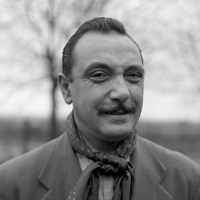DjangoBooks.com
Welcome to our Community!
Categories
- 20K All Categories
- 1.1K General
- 481 Welcome
- 59 Archtop Eddy's Corner
- 146 CD, DVD, and Concert Reviews
- 385 FAQ
- 26 Gypsy Jazz Italia
- 27 Photos
- 208 Gypsy Picking
- 21 Unaccompanied Django
- 15 Pearl Django Play-Along Vol.1
- 17 Gypsy Fire
- 45 Gypsy Rhythm
- 1.4K Gypsy Jazz University - Get Educated
- 131 Gypsy Jazz 101
- 230 Repertoire
- 226 History
- 709 Technique
- 51 Licks and Patterns
- 6 Daniel Givone Manouche Guitare Method Users Group
- 20 Eddie Lang Club
- 1.3K Gypsy Jazz Gear
- 811 Guitars, Strings, Picks, Amps, Pickups and Other Accessories
- 463 Classifieds
- 50 Recording
- 62 Other Instruments
- 18 Violin
- 5 Mandolin
- 22 Accordion
- 7 Bass
- 10 Woodwinds
- 351 Gypsy Jazz Events
- 144 North America
- 112 Europe
- 95 International










Comments
Not as much as I would like. I have to stay up until 1:00 am every night, and wake up extra early in order to fit in an hour of practice before I teach my students in the afternoon.
I wish I had as much time to practice as the great players whos solos I'm learning.
anthony
I know you are a busy guy, but if you ever had a few minutes to put together a mini-analysis of the differences in the Django vs. Birelli version, some of us here (okay, well, maybe just me...) might find your thoughts entertaining...
I admire your ability to play other people's solos. I'm pretty much like a commenter in a previous thread (forget who) who finds that hard to do, and to be honest I don't really want to do it badly enough to work through the frustration I'd encounter.
I'm one of these I'VE GOTTA BE ME!!!!! kind of idiot guitar players, for better or worse... probably for worse. So I admire your talent in studying the great players so carefully.
Edgar Degas: "Only when he no longer knows what he is doing does the painter do good things.... To draw, you must close your eyes and sing."
Georges Braque: "In art there is only one thing that counts: the bit that can’t be explained."
Based on the way you've learned as laid out in your book and in combination with learning some solos, you are headed into a really good place.
Thanks a lot Jim ! It's interesting because, while I had certain thoughts about what this challenge will do for my playing, there have been other benefits that I wasn't thinking about.
Primarily, I discovered through this process that I've been picking TOO hard, and it affects my ability to play faster lines.
The only downside is that the time commitment leaves little time to practice anything else, and learning others solos helps a LOT more if you have time to practice applying the new ideas to one's own improvisation. Hopefully I will have said time before DIJ, though that may have to be a AT DIJ project.
Cheers
Anthony
I've put hours and hours into trying to learn some of my favourite Django solos, but then I find what happens is always this:
As soon as I stop practising Given Solo constantly... zIng!--- it mysteriously vanishes into thin air, leaving behind only a few licks as a souvenir.
And I'm right back where I started from.
Sigh.
Edgar Degas: "Only when he no longer knows what he is doing does the painter do good things.... To draw, you must close your eyes and sing."
Georges Braque: "In art there is only one thing that counts: the bit that can’t be explained."
But in listening to some of the wonderful, wonderful guitar players I've heard playing this style it seems to me you can say as a general rule, regardless of technique---
1) the gypsy players somehow SOUND LIKE gypsies
2) the French players somehow SOUND French
3) and most importantly to me, the US/UK players somehow SOUND Anglo
My hypothesis is that there is some area of the brain connecting musical phrasing with native language.
So over the years I've come to the conclusion that I'm one of the guys that's always going to sound Anglo, no matter how much I try to copy Django!
But nevertheless, studying this style has brought me light years ahead of where I would have been otherwise.
I hope this doesn't seem harsh or controversial, and it is not meant to imply that certain players either do not or cannot overcome those categories.
Shitstorm of criticism to begin in Five... Four... Three...
Will
Edgar Degas: "Only when he no longer knows what he is doing does the painter do good things.... To draw, you must close your eyes and sing."
Georges Braque: "In art there is only one thing that counts: the bit that can’t be explained."
My thought on this is simply that french players are in france, playing in the epicenter of popularity in terms of the style. They are influenced daily by others around them. U.S. players are learning it from recordings and books, so probably sound different as a result.
I don't know about the UK players though. I've listened to Tim Robinson, and met him a few years back at DIJ, and he sounds like Django. French?US? I don't know, but definitely Django.
Also, Paul Mehling sounds like Django as well.
Anthony